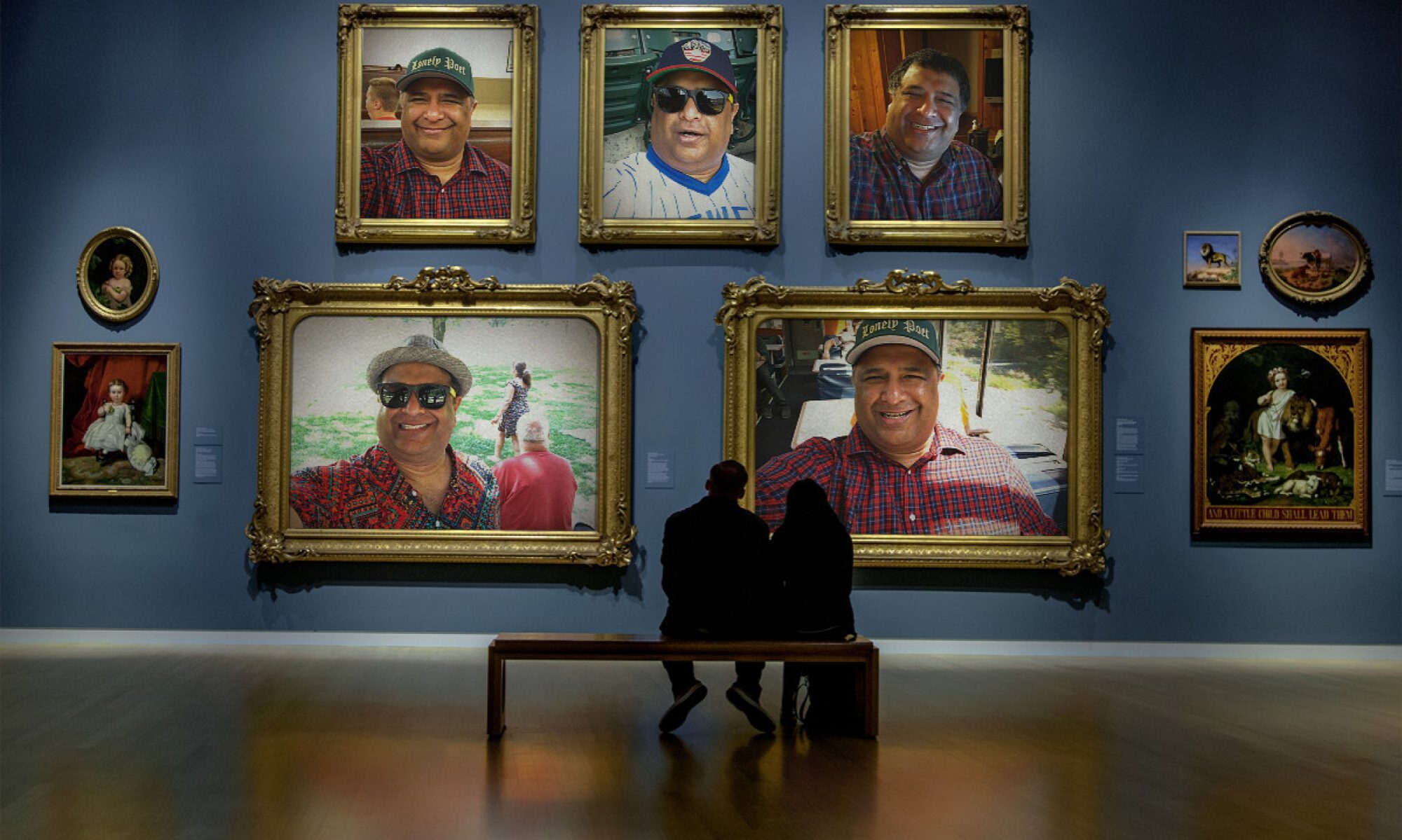Nusrat was born in Faisalabad, Punjab on October 13, 1948 to Ustad Fateh Ali Khan, a distinguished musicologist, vocalist, instrumentalist, and Qawwali performer. He had one brother, Farrukh Fateh Ali Khan.Initially, his father did not want him to follow him into the familybusiness. He had his heart set on Nusrat choosing a more respectablecareer path and becoming a doctor, because he felt Qawwals had lowsocial status. However, Nusrat showed such an aptitude for, andinterest in, Qawwali that his father finally relented and started totrain him in the art of Qawwali and he was also taught to sing withinthe classical framework of Khayal.This training was still incomplete when Ustad Fateh Ali Khan died in1964 while Nusrat was still in school, and the training was continuedby Nusrat’s paternal uncle, Ustad Mubarak Ali Khan.Ten days after his father’s death, Nusrat had a dream where his fathercame to him and told him to sing, touching his throat. Nusrat woke upsinging, and was moved by the dream to decide that he would makeQawwali his career. His first public performance was at his father’sfuneral ceremony forty days later. Under the guidance of Ustad MubarakAli Khan, he became the group’s leader in 1965 and the group was calledNusrat Fateh Ali Khan, Mujahid Mubarak Ali Khan & Party. (“Party” is the term used in Qawwali for the supporting members of the group.)
Nusrat’s first public performance as leader of the family Qawwaligroup was in March 1965, at a studio recording broadcast as part of anannual music festival called Jashn-e-Baharan organized by RadioPakistan. It took Nusrat several years more to perfect his craft andemerge from the shadow of the groups that were regarded as the leadingcontemporary Qawwals. But once he did, there was no looking back. Hefirmly established himself as the leading qawwal of the 20th century.His incredible voice and his complete mastery of the genre made him asuperstar in the Indian subcontinent and the Islamic world. He sang in Urdu and his native Punjabi, as well as Persian. He was also one of the first South Asian singers to perform before large Western audiences.
Nusrat took over his family’s qawwali party in 1971 after the deathof his father and his uncle. In Pakistan, his first major hit was thesong “Haq Ali Ali”. This was performed in a traditional style and withtraditional instrumentation, and featured only sparse use of Nusrat’sinnovative sargam improvisations. Nevertheless the song became a major hit, as many listeners were attracted to the timbre and other qualities of Nusrat’s voice.
He reached out to Western audiences with a couple of fusion records produced by Canadian guitarist Michael Brook. In 1995, he collaborated with Eddie Vedder on the soundtrack to Dead Man Walking. His contribution to that and several other soundtracks and albums (including The Last Temptation of Christ and Natural Born Killers), as well as his friendship with Peter Gabriel, helped to increase his popularity in Europe and the United States. Peter Gabriel’s Real Worldlabel released five albums of Nusrat’s traditional Qawwali performancesin the West. Real World also released albums of his experimental work,including Mustt Mustt (which features a slap bass technique) and Star Rise. He also performed traditional Qawwali live to Western audiences at several WOMAD world music festivals.
Nusrat provided vocals for The Prayer Cycle put together by Jonathan Elias, but died before the vocals could be completed. Alanis Morissette was brought in to sing with his unfinished vocals.
Apparently, when Nusrat toured in foreign countries, he would watchtelevision commercials in order to identify the melodies and chord progressions popular in that country. He would then try to choose similar sounding songs from his repertoire for his performances.
Nusrat contributed songs to, and performed in, several Pakistanimovies. Shortly before his death, he also recorded two songs for a Bollywood movie, Aur Pyaar Ho Gaya, in which he also appeared.
According to the Guinness Book of World Records, Nusrat Fateh Ali Khan holds the world record for the largest recorded output by a Qawwali artist—a total of 125 albums.
Nusrat was taken ill with kidney and liver failure on Monday, August 11, 1997 in London, England while on the way to Los Angeles from Lahore to receive a kidney transplant. He was due to perform in a live concert later in August. While still at Cromwell Hospital, Nusrat died of a sudden cardiac arrest on Saturday, August 16, 1997, aged 48. His body was then transported back to Faisalabad, Pakistan where thousands of distraught people attended his funeral and burial procession.
(Text from Wiki)
Here are three videos of his music. Enjoy
